Latest News
15 November 2018
Marie-Eve Aubin-Tam en Monique van der Veen awarded NWO Athena Prize 2018
Dr Marie-Eve Aubin-Tam and Dr Monique van der Veen, both of the faculty of Applied Sciences at the TU Delft, will receive the NWO Athena Prize 2018 at the CHAINS chemistry conference on 4 December.
25 September 2018
Hyun Youk joins CIFAR Global Scholars network
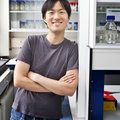
Hyun Youk (Bionanoscience) has been selected as one of the 12 early career researchers who will join the CIFAR Azrieli Global Scholars program. Youk will receive a prestigious two‐year term with 100,000 dollar in research support.
12 September 2018
NWO Spinoza Prize for Delft bionanoscientist Marileen Dogterom
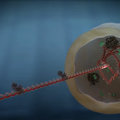
Marileen Dogterom, Professor of Bionanoscience at TU Delft, has been awarded the NWO Spinoza Prize; the highest award in Dutch science. Dogterom carries out research into the dynamics in living cells and leads a consortium which is aiming to build an entirely artificial cell.
05 September 2018
Marileen Dogterom named Society Fellow of the Biophysical Society
Marileen Dogterom (Bionanoscience) is one of seven people who will be designated as Society Fellows of the Biophysical Society.
02 July 2018
Cees Dekker surprised with Best Professor Award 2018

On Monday 2 July, Cees Dekker, Professor of Molecular Biophysics at the Faculty of Applied Sciences (AS), was surprised...
28 May 2018
Bacteriophages

What is invisible and will kill millions of people in thirty years' time? Answer: bacteria. Years of excessive use of antibiotics have enabled certain bacteria to evolve in a way that has become impossible to treat. A small group of researchers at TU Delft is working hard to find a solution.
26 April 2018
Cas3: a biological fishing rod and a shredder rolled into one
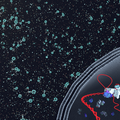
CRISPR-Cas9 has made gene editing a lot easier and will eventually help us erase hereditary diseases from our DNA.
20 April 2018
Researchers build DNA replication in a model synthetic cell
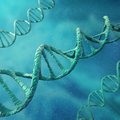
Researchers at Delft University of Technology, in collaboration with colleagues at the Autonomous University of Madrid, have created an artificial DNA blueprint for the replication of DNA in a cell-like structure.
22 February 2018
Loops, loops, and more loops: This is how your DNA gets organised
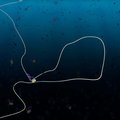
Researchers from the Kavli Institute of Delft University and EMBL Heidelberg now managed for the first time to isolate and film and witnessed—in real time—how a single protein complex called condensin reels in DNA to extrude a loop.
07 February 2018
Mathematics explains why Crispr-Cas9 sometimes cuts the wrong DNA
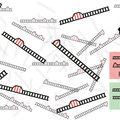
The discovery of the Cas9 protein has been of great value to medical science. It has simplified gene editing tremendously, and may even make it possible to eliminate many hereditary diseases in the near future. Using Cas9, researchers have the ability to cut DNA in a cell to correct mutated genes, or paste new pieces of genetic material into the newly opened spot. Initially, the Crispr-Cas9 system seemed to be extremely accurate. But unfortunately, it is now apparent that Cas9 sometimes also cuts other DNA sequences similar to the exact sequences it was programmed to target. Scientists at Delft University of Technology have developed a mathematical model that explains why Cas9 cuts some DNA sequences while leaving others alone.